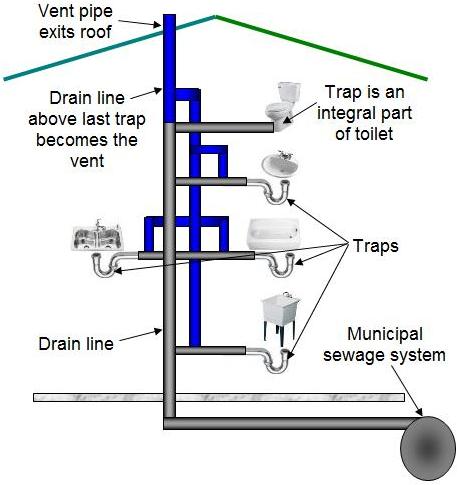
Maximizing Drain Efficiency: Essential Home Plumbing Tips
Maintaining a smoothly functioning plumbing system is crucial for the overall well-being of your home. Efficient drainage is a key aspect of this, and there are several tips and tricks you can employ to ensure your home plumbing drain remains in top-notch condition.
Regular Inspection and Cleaning
The first step to maximizing drain efficiency is to conduct regular inspections. Periodically check all your drains for any signs of blockages or slow drainage. Hair, soap scum, and debris can accumulate over time, leading to clogs. Using a drain snake or a mixture of baking soda and vinegar can help clear minor blockages and keep your drains flowing smoothly.
Proper Disposal Practices
Be mindful of what you dispose of down your drains. Avoid pouring grease, coffee grounds, and large food particles down the kitchen sink. In the bathroom, use a hair catcher to prevent hair and soap from entering the drain. These simple practices can significantly reduce the likelihood of clogs and blockages.
Install Drain Screens
Installing drain screens is an effective preventive measure. These screens act as filters, trapping hair, food particles, and other debris before they enter the drain. Regularly clean the screens to maintain their effectiveness. This simple addition can go a long way in preventing potential plumbing issues.
Hot Water Flush
Periodically flushing your drains with hot water is a simple yet effective maintenance practice. Hot water helps dissolve grease and soap residue that may accumulate in the pipes, preventing clogs. For an added boost, mix in a cup of vinegar before flushing with hot water.
Addressing Minor Leaks Promptly
Even small leaks can lead to significant water damage over time. Keep an eye out for any signs of leaks around your drains and address them promptly. Ignoring minor leaks can result in mold growth and structural damage, making repairs more complex and expensive.
Professional Plumbing Inspection
While regular DIY maintenance is essential, it’s equally important to schedule professional plumbing inspections. A qualified plumber can identify potential issues that may not be apparent during routine checks. Professional inspections can help catch problems early on, preventing major plumbing emergencies.
Upgrade Your Plumbing Fixtures
Consider upgrading your plumbing fixtures to more water-efficient models. Low-flow toilets, faucets, and showerheads not only contribute to water conservation but also reduce the strain on your plumbing system. This can result in improved drain efficiency and lower water bills.
Conclusion
In conclusion, maintaining an efficient home plumbing drain system is a combination of preventive measures, regular inspections, and timely repairs. By adopting these tips, you can prevent clogs, leaks, and other plumbing issues, ensuring your home’s plumbing functions smoothly. Remember, a proactive approach to plumbing maintenance can save you time, money, and the hassle of dealing with unexpected plumbing emergencies.
For professional assistance with your home plumbing needs, including drain maintenance and repairs, contact Home Plumbing Drain. Their experienced team can provide expert guidance and solutions to keep your plumbing system in optimal condition.
